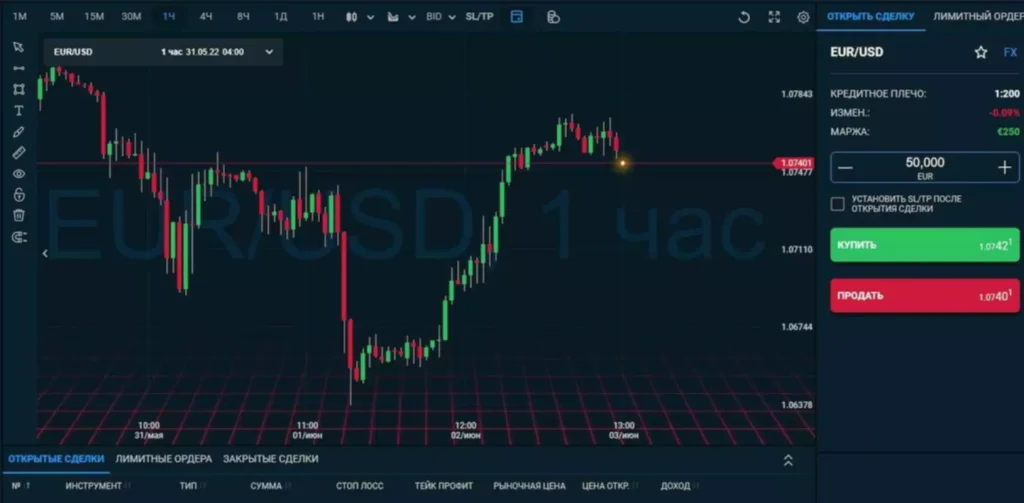Content
- Control Over Production Costs, Marketing, and Branding
- The benefits and disadvantages of the white label model
- The Electronics Industry
- No Market Name for the Manufacturer
- Grow Orders, Save Time & Eliminate Tablet Chaos
- Protect Your Client Base by Adding White Label Software to Your Agency
- What is a White Label Product?
- Ecommerce Business 101
Private label brands have become increasingly popular, which suggests that consumers are becoming more sensitive to price and less loyal to their favorite traditional brands. In many countries, the growth of private label brands is hurting national brands’ (the manufacturers’) market share. If you’re looking for solutions to your online branding needs, you may be considering a white label app for your restaurant. Cuboh is a cost-effective restaurant SaaS service that allows you to build your app and launch your online delivery service quickly. Cuboh integrates with other apps like ChowNow, Sociavore, SmoothCommere and more. On the other hand, white label app development companies sell their apps to multiple businesses.
Selling white label or private label products each presents a unique set of challenges and advantages. Therefore, it would be prudent to compare both sides of the coin before you make your decision. The term ‘white label’ originates from a practice where manufacturers would deliver white label products with a blank label. This practice allows the reseller to add their own brand name and logo before selling. If you would like to venture into branding your own products, this is the right guide for you. Below, we compare white label vs private label branding approaches and provide helpful answers to enable you to make the right choice.
Find a development partner that excels at building solutions that can be securely shared with multiple users. Most white-label apps target not an individual customer but an entire segment. Do you need a white-label fintech platform or hospital mobile app? So, be sure that your future development partner knows the ins and outs of your end-customers and stays current with their preferences .

All you need to do is promote what you have to offer and convert sales. If you follow these steps, you’ll be well on your way to starting your own white label SEO. Then, you need to create a sales deck or pitch to show potential clients what your service is and how it can help them. You can find this information on the provider’s website or by asking for references from past clients.
Control Over Production Costs, Marketing, and Branding
While you can insert your own branding into a white-label app, you’re limited on the options you can select because it’s a generic app that other restaurants may use as well. There may be functions you miss out on because they’re not a part of the programming that you purchased. In her work at Phonexa, she covers a wide range of topics, including call tracking, lead generation, marketing automation, and so much more. Ultimately, the app design and user interface fail to distinguish your brand from other brands in the industry. Sometimes, the manufacturer supplies products to more than one seller; this results in tension and competition in the market. It doesn’t matter much who manufactured the product because a customer only needs a high-quality end product.
Though both the client and their partners are already using the platform, we keep working on it. Our current task is to launch Light Hub Application, which will allow partners to manage content on their white-label solutions on their own. For the time being, all content management is performed by the client’s team.

Going on price alone, you’ll want to use an overseas manufacturer. Overseas options will always be cheaper than American companies. Retailers control the entire https://xcritical.com/ supply chain, so there’s total control over product pricing. And with that pricing control comes a better profit margin compared to resale products.
The benefits and disadvantages of the white label model
“So, the channel partner doing the white labeling solution will have a larger margin because they’re packaging multiple solutions for that business and basically setting their own price.” Earthlink Business is something of a veteran in the white labeling space. It’s a product that works well for channel clients in certain parts of the country, said Clark Crook, director of tech care at Earthlink Business in Buffalo, New York. The principal purpose of white label services is to deliver solutions and tools to businesses and enterprises looking to expand their offerings and extend customer lifetime value. This way, they can focus on fundamental business objectives without the need to hire employees, handle related issues, and develop solutions that are lacking at the moment.

Given that the popularity of mobile apps is increasing rapidly, there are more and more businesses seeking to expand their mobile presence without investing in app development. For most white label partners, we recommend starting with the “conference bridge” setup as it is the most cost-effective option. But if you want to start out using a direct call plan, we can set that up very quickly. Expanded Product Offerings – The reseller can add a white label software product to their line of product offerings. There also wasn’t a big upfront financial commitment aside from the limited amount of marketing Avitar does, Walsh said.
The Electronics Industry
While you are getting the app built, your competitors may have already bagged their first thousand downloads or so. The day you decide to build a custom app and the day you actually launch could be months or even a year apart. The business ecosystem is rapidly evolving and you never know when other businesses take yours over with their modern solutions. About Us Integrate Thirdrocktechkno’ solutions and applications. Hire US Integrate Thirdrocktechkno’ solutions and applications. Services Integrate Thirdrocktechkno’ solutions and applications.
- For a more in-depth understanding, let us explore how each branding approach works.
- Most marketers are initially interested in white labeling because of the positive impact it can have on their business.
- White labeling occurs when the manufacturer of an item uses the branding requested by the purchaser, or marketer, instead of its own.
- You will not get a white-label platform hosted on your domain, which looks like your team developed it.
The service also provides a phone-to-table service for customers who are dining in and a range of flexible loyalty programs designed to keep your customers coming back for more. It’s only natural that some brands may not find it increasingly necessary to utilize this approach. But using a white label service can turn out to be immensely helpful for a number of reasons. On the contrary, a custom app is yours and only yours to maintain.
No Market Name for the Manufacturer
While choosing the right partner, try to focus on those with a strong proficiency in specific services, such as technical SEO, PPC, etc. Whether you work for other agencies or provide services directly to your own business clients, white label alliances can help your company grow. Business optimization professionals might benefit from white label platforms through the ability to segment user data. For example, using behavioral targeting or look-alike modeling to improve media buying or plan future ad campaigns and ultimately expand customer acquisition effectiveness. To enable programmatic ad purchasing or enrich its abilities, companies can purchase custom-built DSPs that feature smart bidding, CTR pacers, creative ad mediums support, and other digital tools. For instance, marketers might benefit from private invitation-based programmatic environments, where they can manually select advertisers and publishers they want to work with.
In the manufacturing industry, the concept of ‘product’ once meant that all the processes would take place under a single company’s banner. This process had a lot of advantages as it reduced the manufacturing cost and reliance on others. But over time, the manufacturing concept has undergone multiple changes adding to the benefit of the multinational organizations. Shopkick uses this as a strategy in helping brands gain sales. Through the app, the consumer is encouraged to use their smartphone to scan the UPC codes of specific products. In exchange, the consumer receives kicks which they can redeem later for free gift cards.
In contrast, private label products have special designs/formulations that may offer customers something more. Organic products, for instance, may provide more health benefits. Subsequently, you can sell private label products at a higher price. Private labeling is a more hands-on approach to product branding. Unlike white labeling, in private labeling, you work alongside your chosen manufacturer to come up with a product design or formula that is unique to your brand. Identifying white label products in stores is usually easy to do.
Grow Orders, Save Time & Eliminate Tablet Chaos
For example, when a restaurant rebrands a food ordering app and then offers it to their guests, it’s B2C white-labeling. At the same time, when a digital marketing provider rebrands a white-label CRM app and resells it to other businesses, it’s B2B white-labeling. Some private label firms only do back-end work and White Label crypto exchange have you act as a middleman between them and the customer . Company is set up to be a front-facing white label digital marketing provider. About eighty percent of our white label partners use us in a front-facing manner, and twenty percent have us only do work on the back-end for them to deliver to the client.
Protect Your Client Base by Adding White Label Software to Your Agency
Additionally, custom apps are very unique and customized for a special user group. The most important difference between these two approaches is that the retailer cannot re-sale the product to a third party in a private label agreement. While in a white label agreement, the manufactured product can be re-sold to other retailers as well. The reseller business focuses entirely on marketing and selling the manufactured product. The seller can modify the product according to its policies and sell it as if it were produced by it.
The strategy relies on a brand’s reputation to carry the sales of another product, so its market clout will play a significant role in the strategy’s success. Here are a few of the reasons why white label branding may not be ideal. Many private label businesses operate as a wholesaler for their own brand name.
Producers may be in locations that are less strict with regards to specific regulations, meaning there is a potential risk to the brand if standards fall short of those required for sale in the U.S. Private label products create a significant issue for CPG brands, who often can’t compete with the low costs of these store-brands. White labeling evens the playing field in the shopping aisle so CPG brands can gain a competitive edge. There are some disadvantages with respect to white labels. Sometimes brand names actually taste better than generic brands.
There are many nations where the development of private label brands is negatively affecting the market share of producers brands. Mass-market strategies are entirely dependent on sales volume. In mass marketing, CPG brands often find themselves competing against retailers—through private label products—to gain price-focused or brand-loyal customers. As such, to properly implement a white label branding strategy, a brand must already be established and have a large following. Only then will they be able to use white label branding to increase market share.
What is a White Label Product?
For example, a white label mobile app development company, let’s call it Company A, may build a generic framework of a delivery app for food businesses. Most food businesses require a similar set of features if they decide to launch their own delivery app. So instead of building an app from scratch, they can buy one from Company A, customize it a bit and rebrand it as their own app.
When selling white label products, you should enhance your marketing efforts to differentiate among competitors. Shall we say that while label providers offer their solutions to numerous resellers? It’s quite clear, so be ready to improve your offerings to stand out from the crowd. Nowadays, entrepreneurs can opt for white label solutions instead of manufacturing their products. White label providers create all sorts of tools and services to be rebranded and resold by other companies. Design, Implementation, Testing, and Roll out of the software for either internal or external use requires a lot of planning and time.

